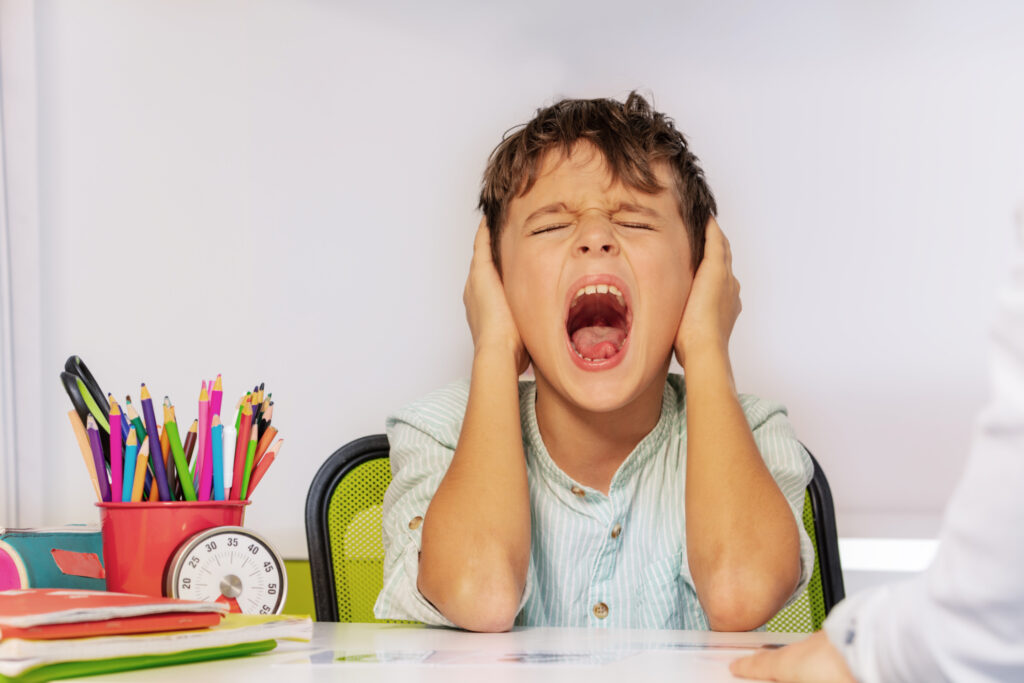Attention Deficit Hyperactivity Disorder (ADHD) is a neurodevelopmental condition that affects an individual from a young age. It can present challenges in various aspects of life, including academics, social interactions, and self-esteem. Our words and actions play a crucial role in shaping the experiences of others, especially children with ADHD. While our intentions may be good, certain remarks can unintentionally hurt or undermine these children. Below we will explore some of the more common phrases we often hear and why these statements are detrimental
- “Just focus and pay attention like everyone else.” Why it’s harmful: ADHD makes it difficult for children to sustain attention and control impulses. Asking them to “just focus,” oversimplifies their struggles and can make them feel inadequate or misunderstood.
- “Stop being so hyperactive, calm down!” Why it’s harmful: Hyperactivity is a core symptom of ADHD. Telling a child to calm down without understanding the neurological basis of their behavior can lead to frustration and self-esteem issues.
- “You’re lazy and not trying hard enough.” Why it’s harmful: Children with ADHD often exert tremendous effort to complete tasks that come easily to others. Labeling them as lazy disregards their efforts and can erode their self-confidence.
- “If you just applied yourself, you could do better.” Why it’s harmful: ADHD affects executive functions such as planning and organizing. This comment overlooks the real challenges they face and implies a lack of effort rather than a cognitive difference.
- “Why can’t you be more like (another child)?” Why it’s harmful: Comparing a child with ADHD to others can intensify feelings of inadequacy and foster resentment. Each child has unique strengths and challenges, and such comparisons are unfair and unhelpful.
- “You’re always so disruptive.” Why it’s harmful: Children with ADHD may struggle with impulsivity and social interactions. Labeling them as disruptive can increase feelings of alienation and decrease their self-worth.
- “Maybe if you didn’t eat so much sugar, you wouldn’t be so hyper.” Why it’s harmful: There is no conclusive evidence linking sugar intake to ADHD symptoms. This statement perpetuates myths and can lead to misplaced blame and guilt.
- “You’re using ADHD as an excuse – I have seen you be able to (executive functioning skill) before.” Why it’s harmful: ADHD is a recognized medical condition that significantly impacts daily life. Dismissing their challenges as excuses invalidates their experiences and undermines their need for support. Overall inconsistency is the hallmark of ADHD; therefore, unreliable skills and behaviors are to be expected and not confused for a conscious choice.
- “You don’t need medication.” Why it’s harmful: Medication prescribed for ADHD can be a crucial part of managing symptoms and is currently the top most effective treatment for the condition. Disregarding medical advice may prevent a child from receiving necessary treatment and support.
- “I don’t believe ADHD is a real thing.” Why it’s harmful: ADHD is a well-documented neurodevelopmental disorder supported by scientific research. Denying its existence undermines the child’s experiences and the challenges they face.
It is important to keep in mind that the difficulties that arise with ADHD have nothing to do with the amount of effort the individual is putting in or the choice of being oppositional, defiant or refusal, but rather the behaviors stem from lagging skills and neurological differences. While it’s natural to sometimes say things out of ignorance or frustration, educating ourselves about ADHD and being mindful of our words can make a significant difference in the lives of others. Instead of focusing on what not to say, we should strive to encourage and uplift these children, recognizing their strengths and supporting them in overcoming their challenges. By fostering an inclusive and supportive environment, we can empower ADHD children to thrive and reach their full potential.
Here at Dandelion, we provide intensive parent support services and can help you in further understanding ADHD and ways to support your child through the challenges.

